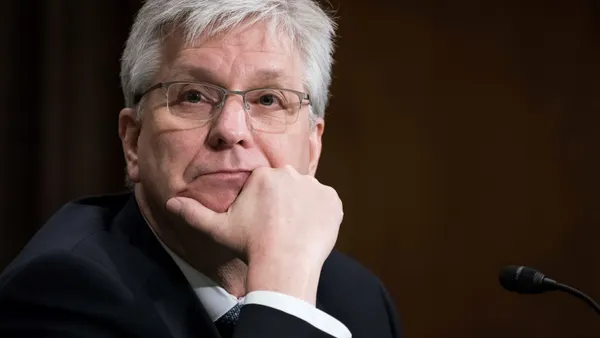As global head of strategy and business management at HSBC, Brian Muse-McKenney was on the hunt for a fintech partner that could help build a social payments app worthy of competing with AliPay and WeChat in the Hong Kong market.
He said he knew the bank had a “massive technology disadvantage” against the internet giants. WeChat’s payments function had been around since 2013, and Alipay’s was even older. His scouring led him to Austin, Texas-based Episode Six, a fintech which purports to help banks graduate from their legacy payments technology to build innovative products their customers love.
With Episode Six’s infrastructure, HSBC did just that – and since its 2017 creation, its social payments app PayMe has grown to 70% market share in Hong Kong, Muse-McKenney said.
His experience with E6 led HSBC to lead a funding round in support of the firm, and Muse-McKenney joined E6’s board. Six years after PayMe was created, he left HSBC to join the firm full on.
“What really lights me up is, I really believe that regulated companies have the best suited position to deliver products that customers need, but also that customers love; but that to enable that and to effectively compete with some of these newer entrants, they need modern technology to do so,” said Muse-McKenney, now E6’s chief revenue officer.
E6’s infrastructure allows enterprise clients – mostly banks and fintechs – to issue and manage cards, virtual accounts, installments and rewards; and its platform supports use cases such as business-to-business payments and global wallets.
The firm also provides services for governments. Since November, Germany has used E6 to issue payouts to refugees and asylum seekers on programmable cards, digitizing what used to be a paper-based payment.
Using E6’s platform, the German government can more easily issue such payments, supporting financial inclusion while having control over where program participants spend the money they’re allocated. The cards are available digitally and physically, and are available in multiple different colors to avoid refugee discrimination.
Last week, E6 announced a partnership with Yoo Financial, the Canada-based fintech subsidiary of global payment processor OTT Pay Inc. Leveraging Yoo’s Mastercard issuing and acquiring license and E6’s digital ledger platform, the firms together plan to create customizable credit products available throughout Canada.
“Personalization is no longer optional,” said Blair Cameron, founder and president of Yoo Financial and CEO of OTT Pay in a prepared statement. “[W]ith E6 and Mastercard as our partners, we will continue to innovate and deliver on our promise of choice and value.”
Different worlds
While still at HSBC, Muse-McKenney had climbed to positions including innovation chief and chief business officer of HSBC platforms, and had achieved high-level positions at Citi before HSBC.
Working in fintech is worlds different from his banking career, according to Muse-McKenney.
“I would say I probably spent 70% of my time any given week on internal stuff – whether internal governance, internal risk committees, trying to get my budget approved for next year, stuff like that. So only 30% was focused on customers and growth. Being on this side, that's become like a 95/5 equation,” he said.
“One story I like to tell – I launched this one product that was going live in multiple countries simultaneously,” he said. “It was an international multi-currency wallet for SMEs. I had to get 168 approvals to launch that product into the market. When I joined Episode Six, we didn't even have 168 people.”
But one upside to being on the bank side? Everyone takes your call.
“I could pretty much call or write anybody and people would take meetings with me. They knew the company, versus if you're a relatively small but growing fintech, it's a lot harder to have people engage with you,” he said.
He doesn’t fret, though. Once he’s in the door, he said, he knows E6’s capabilities and customer roster speak for themselves.
“Obviously, [we’ve] got a great story to sell," he said.













